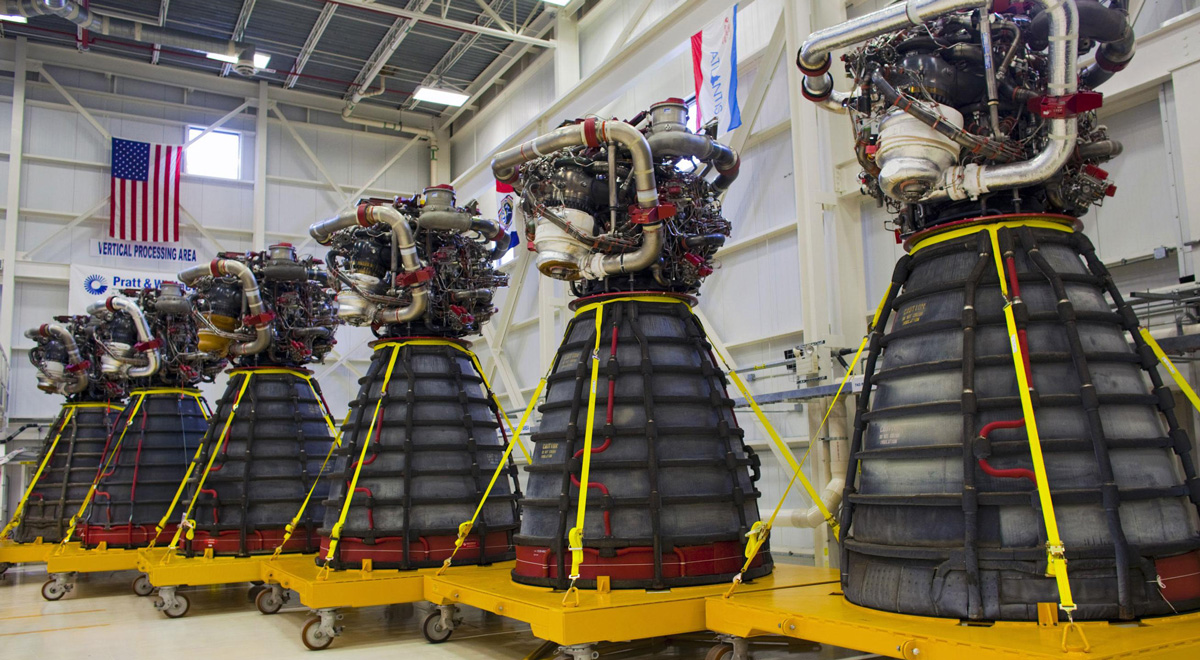The deal comes exactly two years after Lockheed Martin sought to buy Aerojet in a $4.4 billion bid
WASHINGTON — L3Harris Technologies on Dec. 18 announced an agreement to acquire Aerojet Rocketdyne for $4.7 billion.
The deal comes exactly two years after Lockheed Martin sought to buy Aerojet in a $4.4 billion bid that was blocked by antitrust regulators earlier this year.
L3Harris is buying Aerojet at $58 per share in an all-cash transaction. Aerojet shares traded at $54.89 on Dec. 16. The deal is expected to close in 2023, pending regulatory approvals.
Aerojet Rocketdyne, based in Sacramento, California, manufactures rocket engines and propulsion systems for space vehicles, ballistic missiles and military tactical weapons. The company generates approximately $2.3 billion in annual revenue.
L3Harris, headquartered in Melbourne, Florida, is a global defense and aerospace firm with $17 billion in annual revenue.
The acquisition of Aerojet would give L3Harris a greater footprint in civil space, strategic defense systems and precision munitions.
“With this acquisition, we will use the combined talents of more than 50,000 employees to drive continuous process improvement, enhance business operations and elevate the performance of this crucial national asset,” L3Harris CEO Christopher Kubasik said in a statement.
Aerojet’s CEO Eileen Drake said the sale of the company to L3Harris will “accelerate innovation for national security propulsion solutions while providing a premium cash value for our shareholders and tremendous benefits for our employees, customers, partners and the communities in which we operate.”
According to media reports, there were multiple buyers interested in acquiring Aerojet, including General Electric, Textron and private equity firms.
As the last remaining independent U.S. supplier of propulsion systems for tactical missiles, Aerojet for the past two years has been at the center of a contentious battle over the consolidation of aerospace and defense industry firms. The Pentagon never publicly disclosed its views on Lockheed’s attempt to buy Aerojet but made it clear in a report that it would challenge vertical integration of defense suppliers.
Aerojet executives and some lawmakers have argued that the company needs more financial resources to invest in next-generation technologies and would be better off as part of a larger defense contractor rather than as an independent company.
‘Strengthened merchant supplier’
The Federal Trade Commission in February blocked Lockheed’s bid arguing that the deal would give Lockheed — a major supplier of tactical missiles — the ability to “cut off other defense contractors from the critical components they need to build competing missiles.”
L3Harris said Dec. 18 the acquisition will “ensure the defense industrial base and our customers will have a strengthened merchant supplier to effectively address both current and emerging threats – and promote scientific discovery and innovation – through targeted investment in advanced missile technologies, hypersonics and more.”
Aerojet and L3Harris would combine complementary programs and not likely create the vertical integration concerns that scuttled the deal with Lockheed Martin, industry analyst Byron Callan, of Capital Alpha Partners, wrote in a research note last month. L3Harris does not have a “significant market position in solid propellant rocket motors or satellite maneuvering systems.”
The acquisition of Aerojet would continue L3Harris’ expansion in the defense and space sectors following the 2019 merger of L3 Technologies and Harris Corp. The company in October acquired Viasat’s tactical data link business for $1.96 billion.
If the deal goes through, it would bring certainty to Aerojet after two years of turmoil.
The CEO of one of Aerojet’s main customers, Raytheon, recently complained in a Defense One interview that the quality of Aerojet’s rocket motors and schedule performance have slipped due to the distractions of being for sale.
On the NASA side, Aerojet reported delays in the production of RS-25 engines for the Artemis moon program. The company won a $1.79 billion contract from NASA in 2020 to produce a new expendable version of the engine for the Space Launch System to replace the current supply of refurbished Space Shuttle-era RS-25 engines.
